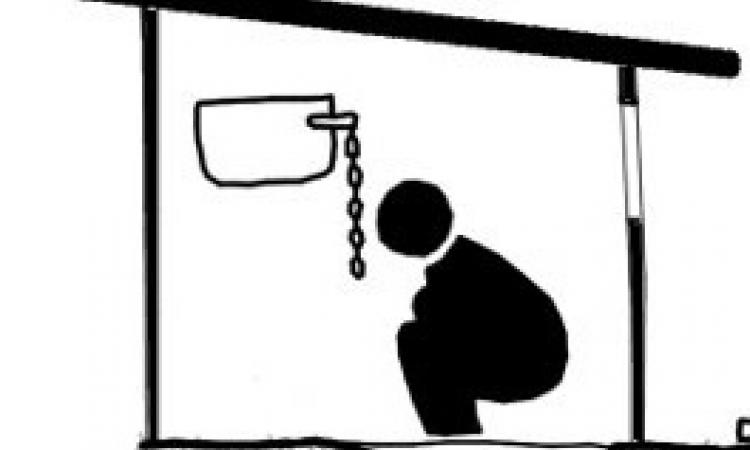
Don't have toilet, can't contest polls
Those who do not have a toilet in their house can't contest panchayat and urban local body elections in Bihar, the State chief minister Nitish Kumar announced. Necessary amendment to the Bihar Panchayati Raj Act will be brought out soon in order to implement this decision, the CM said. The State Government will also introduce a fund under which Rs 2 lakh will be allocated to panchayats for construction of toilets. The new fund will provide money to villagers during the construction of the toilet itself unlike the Centre's Total Sanitation Campaign that pays Rs 4,600 to the benefeciary only after the toilet has been constructed.
Ganga Jal pitchers to act as receptacles of religious waste in Varanasi
To save the Ganga from pollution and placate religious sentiments simultaneously, the Varanasi Municipal Corporation will place pitchers full of water from the Ganga river at 10 places in the city. People will be encouraged to use these pitchers as bins for religious waste, including ash and sacred threads rather than throw that in the river directly. An NGO, inspired by a similar arrangement in Hussain Sagar, Hyderabad, made this proposal to the Corporation.
Rs 1,444 crores for rural water supply in Maharashtra
The Maharashtra Cabinet this week approved a Rs 1,444 crore project for supply of water in rural areas. The project is the second phase of 'Jalswarajya', a scheme partly funded by the World Bank. The project aims to improve the rural communities' access to sustainable drinking water and sanitation services.The first phase of the project, implemented between 2003-09, provided 4,140 new piped water schemes while 1,848 gram panchayats became open defecation free.
Centre asks J&K to assess the impact of hydropower projects
The Ministry of Environment and Forests has asked the Jammu and Kashmir government to study the impact of hydropower projects on all river basins in Jammu and Kashmir. The study, named as the Integrated Basin Study, will be conducted on the 26 hydropower projects on the three major rivers in the State—Jhelum, Chenab and Sindh. The study is being undertaken in the wake of flash floods in Uttarakhand where dams increased the damage. It will be conducted over a period of two years to prepare a blueprint for setting up power projects in future.
Krishna and Godavari should be controlled by the Centre: Ramesh
The control of two of Andhra Pradesh's and also Asia's biggest rivers, the Krishna and the Godavari, should remain with the Centre after the bifurcation of the State, Rural Development Minister Jairam Ramesh has suggested. Krishna and Godavari originate in Maharashtra and flow through Telangana before entering the Seemandhra region of the State and empty into the Bay of Bengal. Ramesh has suggested the constitution of a Centrally managed Krishna Godavari River Board to deal with issues of irrigation, hydropower and drinking water in the two newly formed states.
This is a weekly roundup of policy matters from November 17-23. Also read last week's news updates.